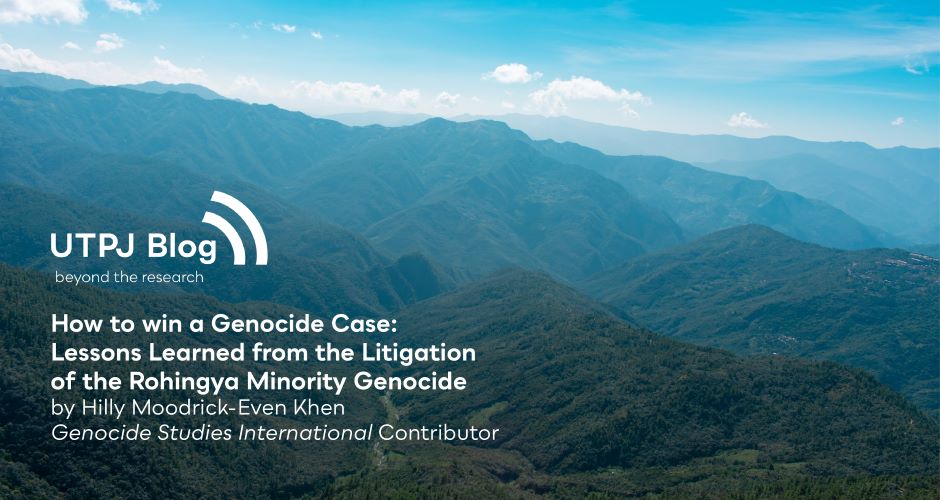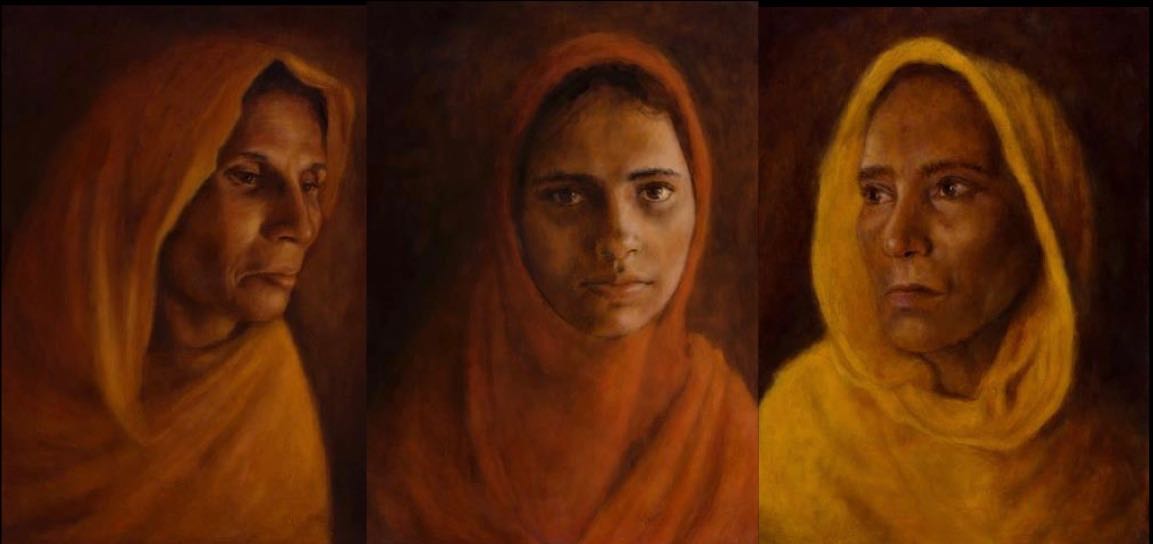
Written by guest blogger Hilly Moodrick-Even Khen.
Six and a half years passed since the harrowing attacks on the Rohingya minority in Myanmar, attacks that amounted to genocide. As a human being, my reaction to the reports on these atrocities was shock and horror. I was disheartened by the “calculated cruelty“, (to use the words of the ICC prosecutor in a different context) of Myanmar’s Tatmadaw army and civilians of Rakhine’s state, which took the form of mass killings of civilians—including opening fire on fleeing civilians and planting land mines near border crossings to —deportations to Bangladesh, demolition of hundreds of Rohingya villages, arson, and mass sexual and gender-based violence.
When I learned about the long history of marginalization, discrimination and humiliation of the Rohingya ethnic Muslim minority, manifested in five waves of violence (1978-2012) prior to the 2017 military crackdown, I understood these atrocities amounted to genocide. As a legal scholar focusing on the intersection between the legal and social aspects of genocide in contemporary contexts, I knew that allegations of genocide made by some legal institutions would be hard to prove in international and domestic courts. Yet, when I encountered the initiatives of the legal advocates for the Rohingya minority, I thought their strategy was brilliant. Litigating the case in three different fora—the ICJ, the ICC and the federal court in Buenos Aires, Argentina—seemed to me almost a “recipe” for success. This is how you win a case of genocide.
 Hannah Thomas, Triptych of Rohingya women in refugee camps in Bangladesh
Hannah Thomas, Triptych of Rohingya women in refugee camps in Bangladesh
Yet, I also knew that the implementation of this strategy, as brilliant as it may be, would have to overcome the inevitable hurdles entailed in the litigation of a genocide case. I thought it would be interesting for me, and helpful for the litigators, to point out the difficulties of proving the case. I examined both the structural and procedural inhibitors and the material difficulties bound up in the litigation of the case and discovered a difficulty common to all three fora: proving the special intent required for the commission of a crime of genocide—the “intent to destroy in whole or in part” a specific group, in that case, an ethnic and religious group. Proving the special intent was a hurdle and trap of every genocide litigation from the Srebrenica massacre case litigated in the ICJ through Sudan’s former president, Omar al Bashir’s arrest warrant case. I analyzed these legal precedents to explain what is required to prove the special intent, and how it is possible, though significantly difficult.
I found that what was crucial for the advocate’s success has already been achieved: the decision to litigate the case in three different fora. This way, each forum could back up the others; the flaws of one will be compensated by the other. Thus, the chances for accountability for the crime of genocide will be increased, to prove both individual and state responsibility.
My article was written in the aftermath of the Rohingya genocide. But genocides of other peoples, ethnic and religious minorities continue to take place today. As the ICC prosecutor said recently, these are the “most serious international crimes that shock the conscience of humanity, crimes which the ICC was established to address.” The legal arena has the most significant means to win the fight against genocide. We should never despair of this fight, hoping to deter and prevent the crime that was so rightfully defined as “the crime of crimes.”

DR. MOODRICK-EVEN KHEN is a senior lecturer of public international law at Ariel University, and chair of the Ariel University Center for the Research and Study of Genocide. Dr. Moodrick-Even Khen specializes in various fields of international law, including international criminal law, genocide and law, international human rights law and international humanitarian law. With her academic background and expertise Dr. Moodrick-Even Khen has made significant contributions to the field. She has authored numerous articles and published several books covering a wide range of topics, including children in armed conflicts, targeted killings, occupied territories, the principles of distinction and proportionality in an armed conflict, the Israeli Palestinian conflict, and the intersection between the legal and social aspects of genocide in contemporary contexts, such as the genocides of the Rohingya, the Yezidis and the Uyghurs. Dr. Moodrick-Even Khen has published two books and two edited volumes, the latest being: The Syrian War: Between Justice and Political Reality (co-edited with Nir Boms and Sareta Ashraph, CUP, 2020). She lectures extensively on her scholarly work both at academic conferences and before practitioners in the fields of law.
“How to Win a Genocide Case: Analyzing the Triple Strategy of the Advocates of the Rohingya in Myanmar” was published in Genocide Studies International 14.2 and is Free to Read until December 26th.
Comments on this entry are closed.